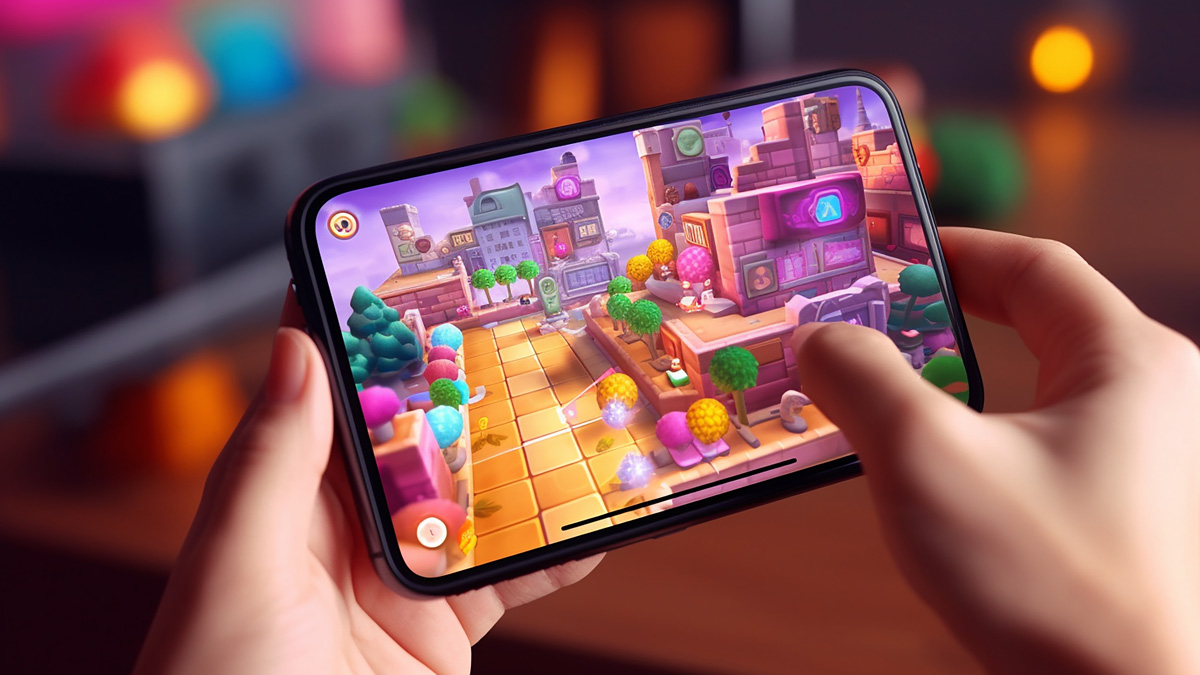
To build any type of game, including hyper-casual, you need to bring your idea to life using a game engine. These engines translate your code and commands into a playable game. Even before forming a team, you’ll need to pick the right engine. This choice helps you find the right developer and define your development path.
What Is a Game Engine?
Creating a complete game involves many elements—music, character design, and gameplay mechanics all come together to make the final product. Normally, you’d need different software for each task—for example, Photoshop for character design.

But with game engines, especially for hyper-casual games, you don’t need multiple tools. A good engine allows you to design and implement every part of the game in one place.
Types of Game Engines
Most engines offer similar features for building hyper-casual games. However, when you look closely, there are key differences.
Common features include: high-level graphics, physics design (like object collisions), visual design, music integration, coding tools, UI design, networking, and artificial intelligence.
You can either learn a specific programming language for your chosen engine or use no-code options offered by many engines to design your game.
How Game Engines Work

Game engines offer tools that help you bring your game logic and rules to life. To do this, you usually need to learn a programming language specific to your engine.
This language lets you build your game step by step. The engine processes your code and turns it into a playable game—exactly what you had in mind.
No-code engines work the same way, except instead of writing code, you use built-in options to apply logic and features.
Programming Languages for Game Development
As mentioned earlier, depending on the engine you choose, you’ll need to learn a specific programming language. Common ones include JavaScript, Python, C#, C++, and C.
Each of these languages is tied to specific engines—which we’ll explore now.
Working with the Most Popular Game Engines
Game engines are now widely taught and have brought many new creators into game development. For hyper-casual games, Unity is one of the most popular engines available today.
Unity isn’t the only option. Unreal Engine is another major tool and holds the second spot in popularity among users.
Unity Game Engine

With Unity, you can create games using either code or visual tools. It supports both C# and JavaScript. So, if you choose Unity, look for developers skilled in these languages—or start learning yourself.
Unreal Engine

Unreal also supports both coding and visual game creation. It’s a powerful platform that lets you build a full hyper-casual game. The main programming language here is C++, so you’ll need developers who know it well.
No-Code Game Development
Game engines let people without programming skills build games. Unity and Unreal both support no-code development along with traditional coding.
Other engines that allow for no-code game creation include Construct 2, GameMaker Studio, and Fusion.
Who Should Use No-Code Tools?
No-code tools are perfect for beginners. They’re time-saving and let you turn your ideas into games fast. If you’re new to game dev and don’t know how to code yet, start here while you learn programming on the side.
Even major studios use no-code tools to quickly build and present early game prototypes. This saves time and money in case a concept doesn’t work out.
Steps Before Choosing a Game Engine
Each engine has its strengths. Choose one that fits your project needs and personal skills. Here are some key factors to consider when picking the right engine:
Game Genre or Mechanics
The genre or gameplay mechanics of your hyper-casual game help determine which engine you should use. Complex genres might need more advanced tools. Whether your game is online or offline also matters—Unity is often better for online games due to its networking features.
Graphics Style
Whether your game is 2D or 3D affects your engine choice. For example, GameMaker Studio doesn’t support 3D. But don’t worry—most engines have strong visual tools, so even beginners can get great results.
Programming Skills
Choose an engine that aligns with your current coding skills. Start with a language you know, and pick an engine that supports it. Once you’re comfortable, you can move on to more advanced engines and languages.
Project Budget
Your budget is another factor. For hyper-casual games, you can start with free tools. Once you attract investors, you can upgrade to more powerful engines.
Final Thoughts
There are many engines out there, but the best one depends on your team and your game. No-code tools are great for beginners, but if you want to go pro, you’ll need to learn some programming too.

HosseinDigital Marketing Expert
